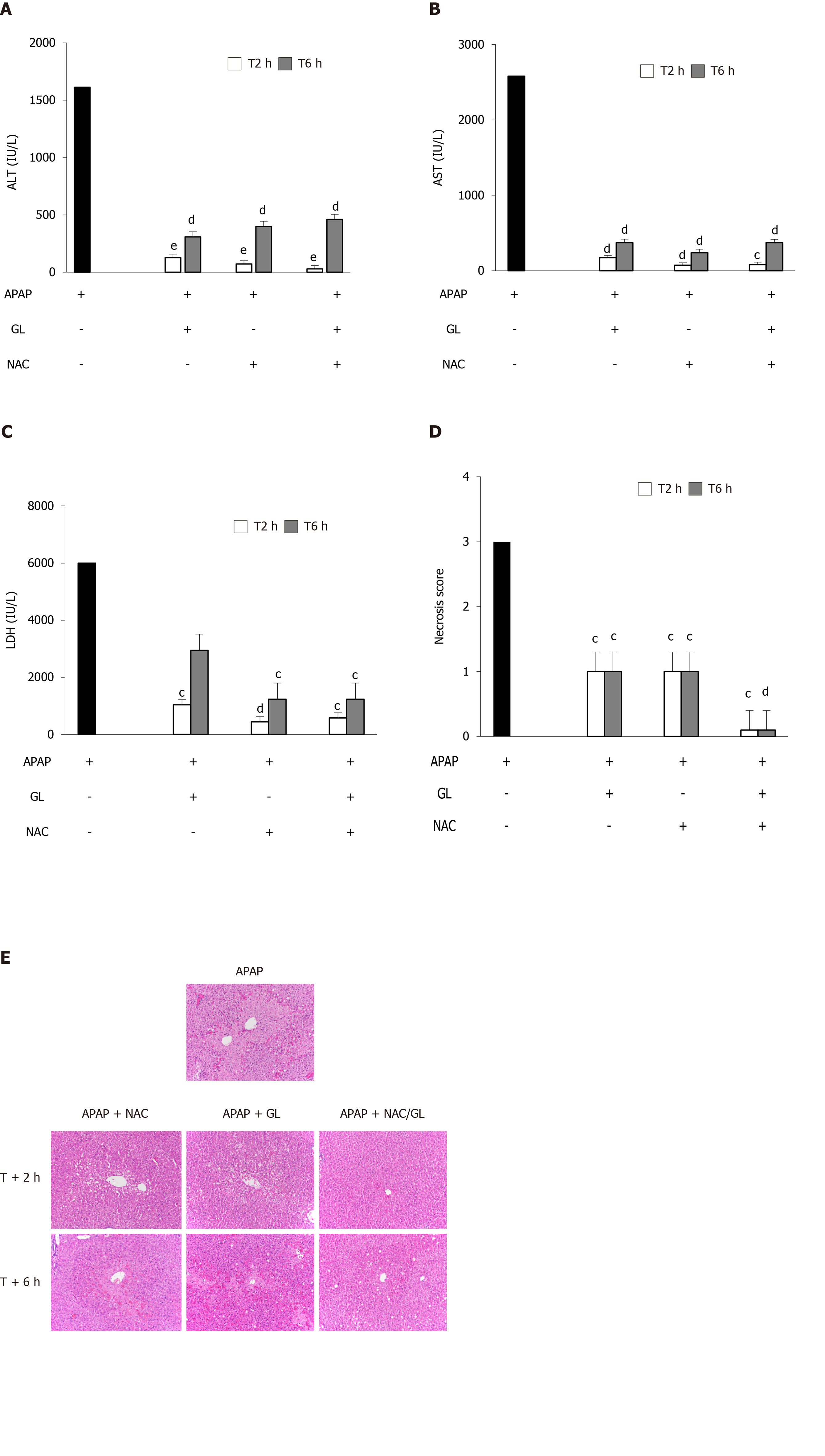Copyright
©The Author(s) 2020.
World J Hepatol. Sep 27, 2020; 12(9): 596-618
Published online Sep 27, 2020. doi: 10.4254/wjh.v12.i9.596
Published online Sep 27, 2020. doi: 10.4254/wjh.v12.i9.596
Figure 6 Delayed administration of N-acetylcysteine/glycyrrhizin combination reduced acetaminophen-induced hepatocytes necrosis compare to glycyrrhizin or N-acetylcysteine alone.
A: Alanine aminotransferase (ALT) levels were measured in the plasma of vehicle-treated mice and mice treated with N-acetylcysteine (NAC, 150 mg/kg), glycyrrhizin (GL, 200 mg/kg) or NAC/GL, 2 h or 6 h after acetaminophen (APAP) injection (10 mice in each group). Mice were scarified 12 h after APAP administration; B: Aspartate aminotransferase (AST) levels were measured in the plasma of vehicle-treated mice and mice treated with NAC (150 mg/kg), GL (200 mg/kg) or NAC/GL, 2 h or 6 h after APAP injection (10 mice in each group). Mice were scarified 12 h after APAP administration; C: Lactate dehydrogenase (LDH) levels were measured in the plasma of vehicle-treated mice and mice treated with NAC (150 mg/kg), GL (200 mg/kg) or NAC/GL, 2 h or 6 h after APAP injection (10 mice in each group). Mice were scarified 12 h after APAP administration; D: Liver necrosis at 12 h after APAP challenge was scored in the same group of mice; E: Representative hematoxylin and eosin (H&E)–stained images (magnification × 200) of murine liver 12 h after vehicle or APAP challenge. Results are expressed as mean ± standard deviation. cP < 0.05, dP < 0.01, eP < 0.001 vs APAP. Experiments were reproduced three times.
- Citation: Minsart C, Rorive S, Lemmers A, Quertinmont E, Gustot T. N-acetylcysteine and glycyrrhizin combination: Benefit outcome in a murine model of acetaminophen-induced liver failure. World J Hepatol 2020; 12(9): 596-618
- URL: https://www.wjgnet.com/1948-5182/full/v12/i9/596.htm
- DOI: https://dx.doi.org/10.4254/wjh.v12.i9.596









